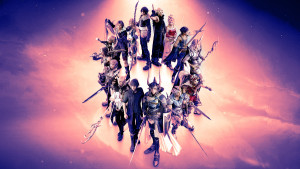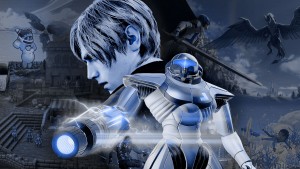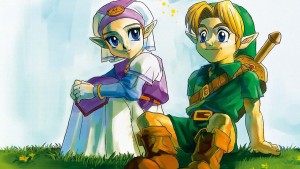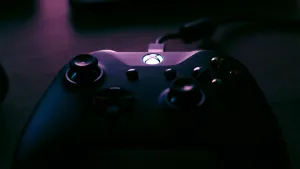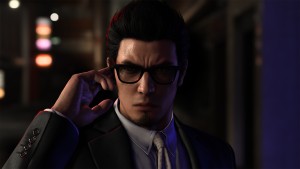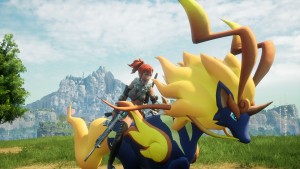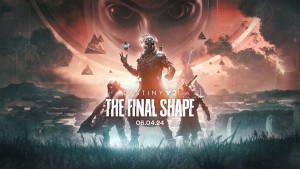The Legend of Zelda: Majora's Mask Review
/Zelda-BIG-3.jpg)
In celebration of the launch of the remake of The Legend of Zelda: Majora's Mask on 3DS this Friday, we wanted to look back 15 years to the original release on Nintendo 64. Way back in Game Informer issue #91, I expressed my enjoyment of this atypical take on the Zelda franchise.
Check out the text below or click on the image at the bottom to see the review in its original layout.
As I've said many times before, Shigeru Miyamoto is the George Lucas of video games, and Zelda is his Star Wars. At this year's Electronic Entertainment Expo, an exuberant Miyamoto greeted the gaming press and openly admitted that his latest endeavor, Majora's Mask, is his best work yet. After spending a significant amount of time in Zelda's new world, I heartily agree. Majora's Mask is Miyamoto's magnum opus.
Majora's Mask achieves the highest of accolades for its excellence in gameplay, its dynamic storytelling, and for being one of the most innovative titles in recent history. Instead of rehashing the same story Link's been engrossed in for the last ten years, Majora's Mask is the first true sequel in the Zelda series. Ganon is gone, the princess is but a faint memory, and everything else is brand spanking new. A nice touch on Miyamoto's part, Link occasionally reflects to consequential scenes from Ocarina of Time. Along with these flashbacks, Link displays more emotion, making him less of a static character. A new chapter in the Zelda legacy should be more than enough to warrant a purchase, but it's just one of the small changes that makes this game so incredible.
| Guerrilla Warfare |
| Sharing the same innovative makeover as the story and gameplay, the bosses in Majora's Mask are brilliant adversaries that usually require obscure tactics to defeat. Just like the Ganon encounters in Ocarina of Time, to topple these hostile hooligans you'll often be required to use multiple weapons, powers, and masks. As intended, these bosses are very difficult, and with the clock ticking as you try to figure out there weaknesses, extremely frustrating as well. |
Since this follow-up is running on the same engine as Ocarina of Time, most of the character movement and menu management is identical. The slick three button inventory system remains, and most of Link's powerful weapons make a return. Whether it was foreshadowing on Miyamoto's part or not, the masks from the first adventure play an important role in this game. By wearing different masks, Link can either transform into a different species, or simply gain new powers. Above and beyond this, and tying into the heart of the story, the entire game takes place within 72 hours. Unlike earth, time flies in Zelda's world, and each day only lasts 20 minutes. This means the game ends abruptly in under an hour. The brilliant aspect of this is that the player must finish a number of tasks as quickly as possible, then play the Ocarina to return to the beginning of day one, hoping that the events they've completed will change the next 72 hours.
| Marvelous Minutia |
| To break up the quest and lower the stress level, a handful of interesting minigames have been added. Along with a Pokémon Snap-like photo shoot, horse riding and wacky mask related capers await. Most of these events are optional, but some of the rewards cannot be missed. You may just find yourself winning a weapon, song, or mask that changes the entire way that you play the game. |
Slapping a timer onto every second of the game creates intense pandemonium and requires split-second decision making. Other than being one of the most inventive premises in all of gaming, Majora's Mask electrifies in every way possible. From graphical detailing and classic sound effects to the intriguing plot and gameplay, this Zelda is a triumph. Without question, Majora's Mask is the finest adventure the Nintendo 64 has to offer.
| The Music Man |
| Just like the last game, Link relies heavily on his Ocarina. With it he can speed up time, compress time, create clone images, summon storms, heal, and call his trusty steed, Epona. In Ocarina of Time, playing music was used only to trigger key events. In Majora's Mask, you'll need to use it extensively. Your life, and the well being of everyone in the world, weighs heavily on your ability to blow soothing melodies through an awkward piece of wood. |
written by Andrew Reiner
Click the image above to see the review in its original layout.






















/majoramask-review1.jpg)

